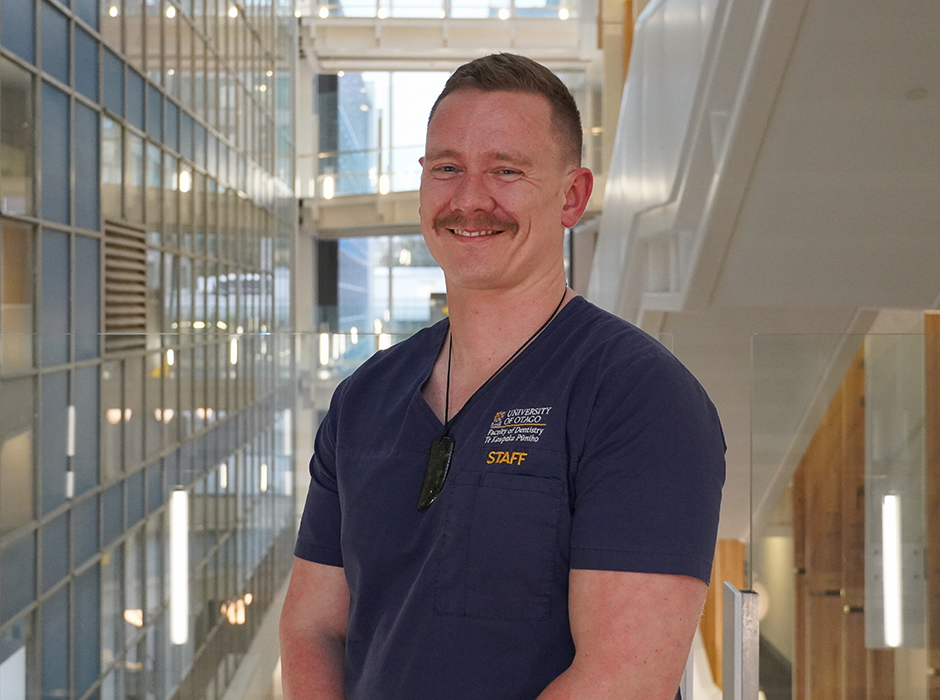
Sam Carrington is passionate about access to dental care and oral health equity.
Growing up, Samuel Carrington (Te Arawa, Ngāti Whakaue, Ngāti Pikiao, Ngāti Hurungaterangi, Ngāti Rongomai, Ngāti Te Kahu o Ngāti Whakaue) was always baffled why dental care cost so much once you turn 18, particularly disadvantaging Māori.
It was the start of a lifelong passion championing Māori oral health equity for the Associate Dean Māori, of Otago’s Faculty of Dentistry Te Kaupeka Pūniho, who recently became a Fellow of the UK Royal Society for Public Health (RSPH).
“I’m always keen to find out what’s happening in oral health around the world, so a colleague suggested becoming a member of the RSPH.”
Following a review of his application, the RSPH membership committee came back saying they wanted to make him a Fellow instead, the highest grade of membership reserved for senior public health professionals meeting specific criteria.
The Fellowship opens doors to experts worldwide who have insight into Indigenous oral health equity, Sam says.
“Statistically, Indigenous people make up a very small part of the oral health workforce. My Fellowship will give the Society some perspective on being a Māori oral health practitioner and public health in Aotearoa.
“It will also give me the opportunity to see the work done in this field overseas, particularly any obstacles or policies that I can influence within our health system that will hopefully lead to better outcomes for Māori.”
On the home front, Sam continues his work in public health through his mahi as Associate Dean Māori, on the executive committee of Te Ao Mārama – The New Zealand Māori Dental Association and as a founder of the New Zealand Oral Health Association Te Ohu Pūniho Ora o Aotearoa.
He is guided by the vision statement of Te Ao Mārama, ‘Hei oranga niho mo te iwi Māori - Good oral health for Māori, for life’, calling it “his ethos”.
“Current oral health statistics, not only for Māori, but for everyone in Aotearoa, are not positive. My focus is to look at what can we do as clinicians on the ground to try to make it better.
“I am very passionate about this, particularly when I teach students about access to dental care and oral health equity,” Sam says.
“That usually lights a fire inside for some students, encouraging them to influence spaces and places to lift the profile of oral health therapists when they head out into the workforce.”
Oral health therapists are a relatively “new” profession, with the title becoming recognised in Aotearoa in 2017, Sam says.
“Oral health therapists have the skills to be out in the community, supporting people of all ages with their dental care. A lot of my role with students is about equipping them to advocate for who we are, what we do and how we can help the community.”
Nationally, more oral health therapists than dentists are graduating every year, Sam says.
“This growing workforce is leading to a wave of change in the community by helping ensure that the cost and access to dental care will become less of a barrier.”
For the future, Sam has a larger vision.
“I genuinely hope in my lifetime that dental care for anyone over the age of 18 in Aotearoa in some way becomes part of universal healthcare.”
~ Kōrero by Sandra French, Adviser, Internal Communications.